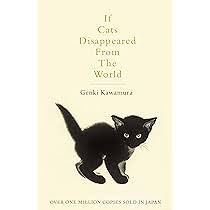Hello and welcome. I'm working remotely for a couple of weeks so please forgive me for any format issues. I don't have access to all my usual tools.
The concept of self-care has cropped up in a number of conversations recently. On the surface it seems like a really good thing. As someone with workaholic tendencies I'm pro adopting a healthy work-life balance. I also believe we all need time and space in our lives for the things that bring us joy and peace.
However, as with any good thing, there can also be a negative side to it. Cue the conversations.
The pastor of a local church bemoaned the last minute cancellation of some Christmas activities because key people had pulled out at short notice claiming they needed time for themselves, and had to put self-care ahead of honouring commitments.
Another friend complained that a relatively new member of staff informed him that they would need a mental health day later in the week. My friend was bemused by the request. Is that simply a request for a day off or an expectation that the company would provide additional days off for this purpose? Again the issue of self-care was raised Any HR folk reading this who can shed light on the ins and outs?
Yet another friend said he was trying to support and mentor a university student who had decided that Saturdays were self-care days and so refused to engage in any social activities or indeed anything that wasn't focused on their own needs and desires.
It is interesting to note the world of psychology has already addressed the fine line that often exists between self-care and selfishness. Here is a recent article from a health magazine:
https://www.psychologs.com/self-care-vs-selfishness-understanding-the-fine-line/
While pondering this I came across a fascinating quote from one of my favourite writers: Frederick Buerchner that offers up a much greater challenge. . He wrote this:
… true peace, the high and biding peace that passes all understanding, is to be had not in retreat from the battle, but only in the thick of the battle. To journey for the sake of saving our own lives is little by little to cease to live in any sense that really matters, even to ourselves, because it is only by journeying for the world’s sake […] that little by little we start to come alive.
In other words true self-care is to be found in self-sacrifice, not simply in avoiding selfishness. Is society selling us a lie with its emphasise on self-care? Is positive mental health actually found in focusing on putting others first?
What do you think?
From my bookshelves
This week I read a slim novel called If cats disappeared from the world by Genki Kawamura. I think I purchased it in a National Trust second-hand bookshop along with Doris Lessing’s book On cats. I have to confess I didn't enjoy Lessing's offering. It won the Nobel Prize for Literature in 2007 so I had high expectations. Perhaps that contributed to its failure to impress me,
Kawamura, however, entranced me immediately with his bittersweet tale of family life and facing up to a terminal illness. I couldn't help but think that it fitted with this week's focus on self-care versus selfishness as the protagonist makes deals with the devil in order to extend his life one day at a time.
Clever story that is beautifully written. Keep an eye out for it.
And finally …
This week's poem was written in 2020 for a friend who had lost a dear feline friend.
In honour of cats
Unblinking feline
Motionless living statue
Sphinx of my morning
Regal majesty
In miniature fantasy
Lion of my noon time.
Curled in sweet slumber
Don’t wake from rest, the hunter
Bastet of my eve.






Maybe if we all had Sunday off (Sabbath) & didn't go shopping or whatever 24/7 and could all have a proper day off there wouldn't be the need.
I don't condone it at all but younger people are going to have to work till they're about 80 so they need to pace themselves. Maybe!
That's 2x maybe!!
I really hate the word "self-care" and the billion-dollar industry surrounded by it. Since when did having some time to yourself become a whole industry and fad that people love to go on about and try and sell you stuff?
Anyway, some valid points here, and I think the root of some of it (but not all) is that lots of people can't say no to things. I think the simplest and cheapest form of "self-care" is saying no to something you don't want to do from the off.